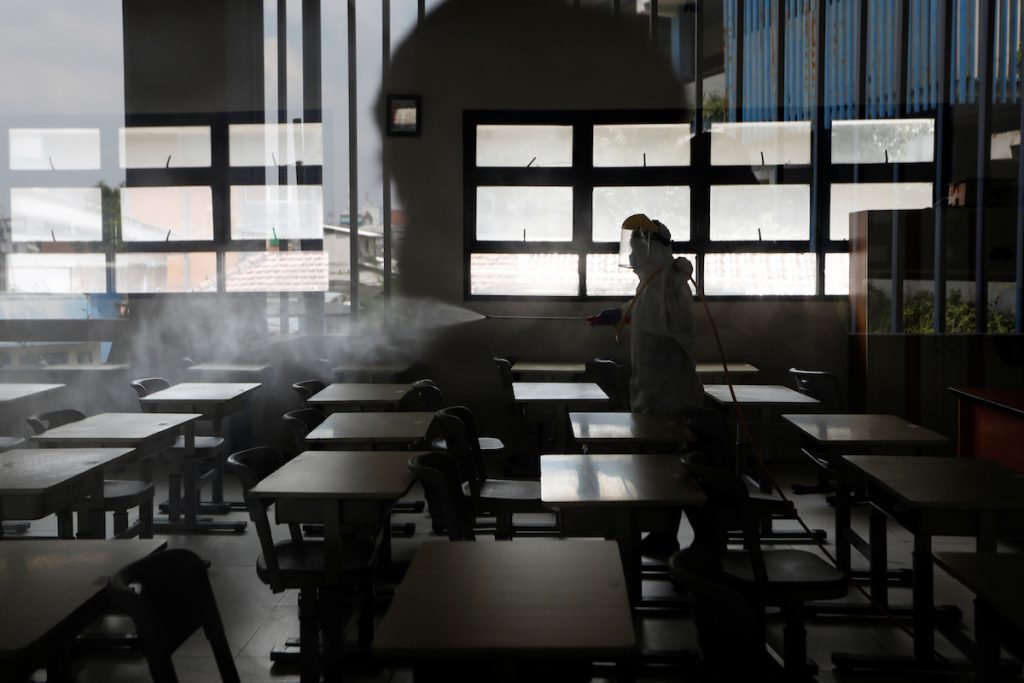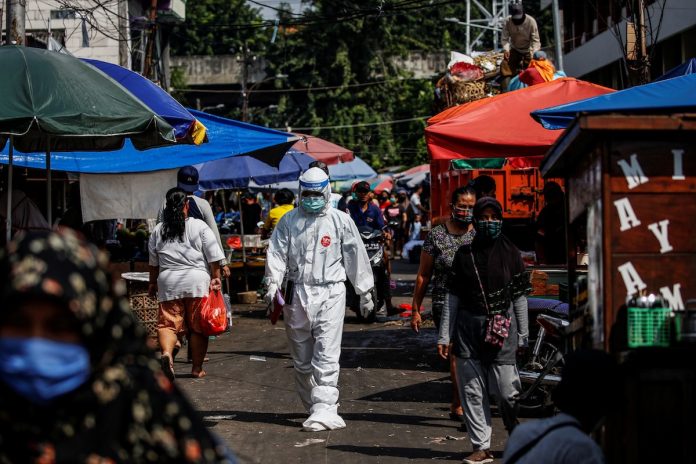Indonesian authorities have complained that hundreds of people had refused testing for the new coronavirus as social taboos emerge as another obstacle to stopping its spread in the world’s fourth-most populous nation.
Indonesia has the highest number of reported infections in Southeast Asia, surpassing 49,000, while at least 2,573 people have died, according to official data, the highest COVID-19 death toll in East Asia outside China.
Despite an acceleration in infections, this week hundreds of traditional traders in Bali and Sumatra refused to get tested, even as bustling, densely packed markets have emerged as common coronavirus infection points, officials said.
In Bali, authorities had aimed to test 2,200 traders in the area of Tabanan but 200 traders failed to turn up on June 23.
“They are afraid of the stigma,” Klungkung Regent Nyoman Suwirta, told Reuters, “That later if it is discovered they will have to be isolated.”
Authorities at Solok market in West Sumatra said 150 there had also refused to be tested.
“Maybe there is fear, maybe there is trauma, we need to explore the reasons why,” said Jasman Rizal, the spokesperson of West Sumatra’s COVID-19 Taskforce, “The government must take persuasive action and educate.”

Indonesia’s 270 million people are spread across 18,000 islands that span more than 5,000 km.
Some villages in Java and Kalimantan have not allowed funerals for those who have died from COVID-19, afraid the burials could spread the disease, while local doctors have reported that some patients exhibiting symptoms have refused to go to designated coronavirus hospitals because of the stigma they might face.
In Sulawesi, one community forcibly retrieved the bodies of suspected coronavirus victims from hospitals, so they can be buried according to religious ritual rather than COVID-19 protocol.
The application of social distancing measures has varied across the country, with some communities paying little heed to them.
Sulfikar Amir, a disaster sociologist at Nanyang Technological University in Singapore, told Reuters that stigma arises from limited information.
“Stigma is an indicator of how communication and information dissemination in Indonesia hasn’t been successful,” he said.









